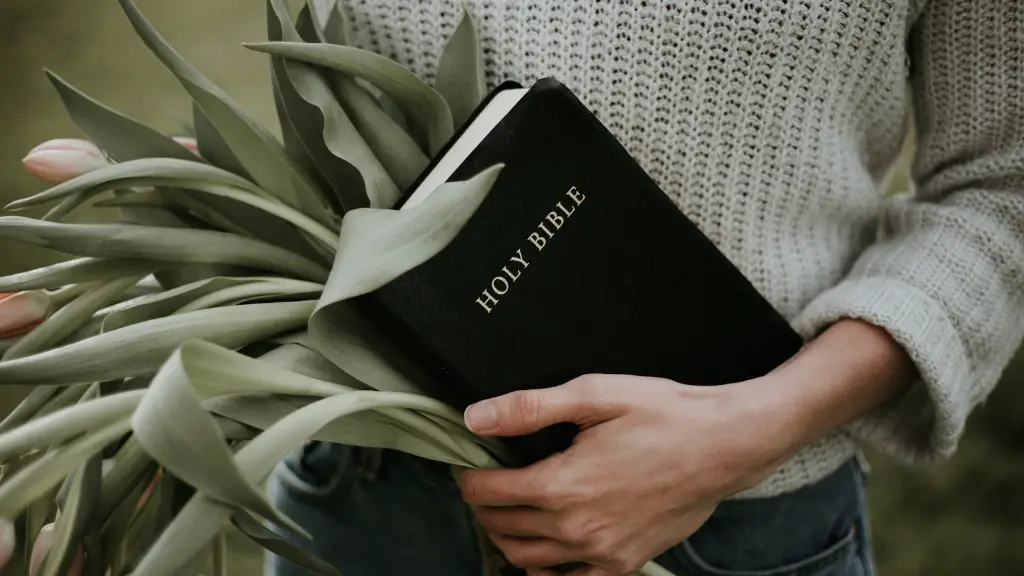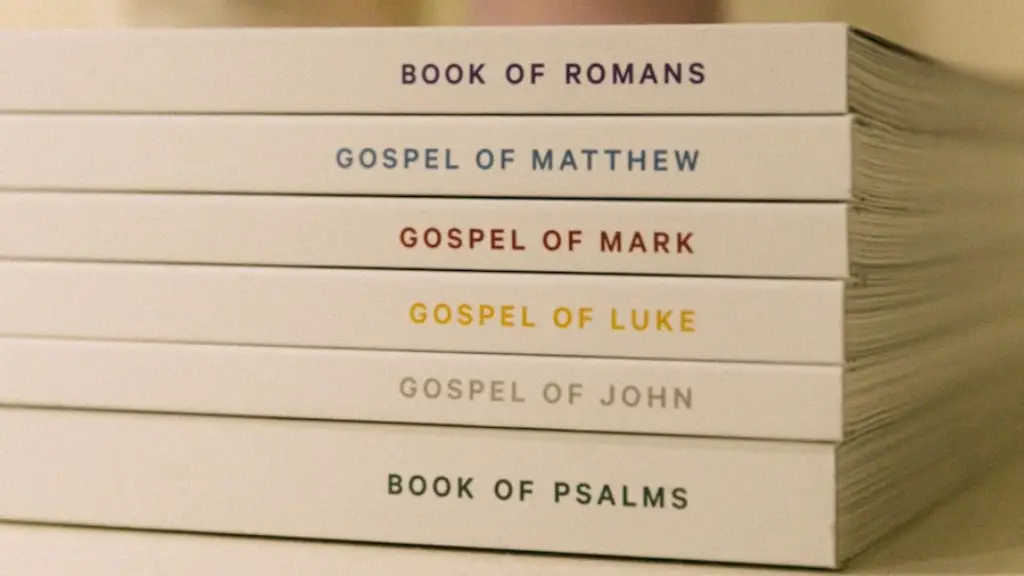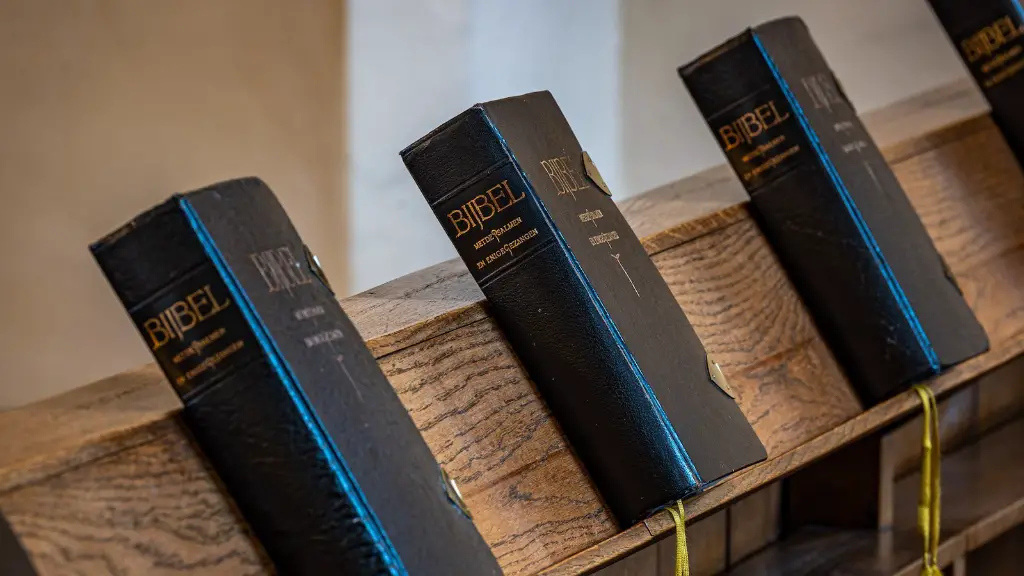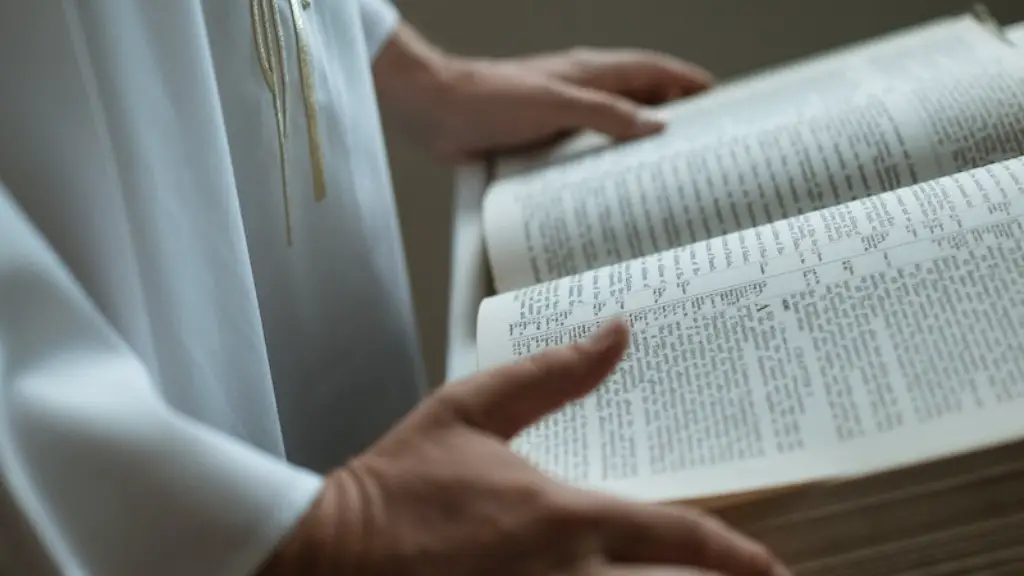The mention of witches in the Bible is still a controversial subject today. Does the bible mention or condemn witches in the good book? Are witchcraft activities something the bible addresses? It is true that there are a few references to witchcraft in the bible, but the bible does not offer a straightforward condemnation of it.
The practice of witchcraft in ancient times was viewed as being a negative experience, especially within the Bible. In the Old Testament, the law was clear in its condemnation of witches, stating “Thou shalt not suffer a witch to live” (Exodus 22:18). This reference to witchcraft was mostly focused around sorcery and seeking out the counsel of spirits.
We can also find references to witches in the New Testament, in particular in the Book of Acts and the gospel of Matthew. The word “witch” is not used in the New Testament; instead, other words are used to describe practices that could be interpreted as magical or spiritual activity. In the Book of Acts, we can find a reference to enchantment and spells, and in the gospel of Matthew it is suggested that Jesus delivered a person from a spirit of infirmity by scourging a demon.
The bible does not offer us a definitive answer as to what constitutes witchcraft or whether it is condemned in the bible. This is mainly due to the fact that the bible does not offer clear definitions or descriptions of the activity. Some theologians believe the bible is referring to practices such as divination, necromancy and divination.Other theologians believe the bible is referring to superstitious activities such as using amulets and talismans.
The issue of witches in the bible is also complicated by the fact that the Bible does not provide us with a consistent view on how we should view or interact with the spiritual world around us. In the New Testament, Jesus is seen as having authority over spiritual powers and is able to cast out demons and evil spirits. On the other hand, the Old Testament contains numerous warnings against sorcery, divination and other supernatural activities.
The bible offers us insight into a wide variety of topics, including witchcraft. However, this does not necessarily mean that the bible offers us a clear condemnation of witchcraft or a definitive answer as to what it involves. Despite this, we can gain an understanding on the topic by looking at the various images, symbols and metaphors that are used in the Bible to describe spiritual activity.
What Is Witchcraft?
Witchcraft is the practice of performing pagan rituals or magical and spiritual practices, performed with the intention of seeking knowledge, understanding, and power. Witchcraft can include a variety of activities, from casting spells to mixing potions, as well as an array of rituals and ceremonies. These magical and spiritual activities are part of an ancient tradition that predates Christianity.
There are different types of witchcraft, such as traditional witchcraft, Wicca, and Paganism. Each of these belief systems has its own practices, rituals, and beliefs. Traditional witchcraft is often practiced in rural areas and usually focuses on herbs, magic, and nature. Wicca is a modern pagan religion which combines beliefs and practices from various other traditions and ancient religions.
The practice of witchcraft is often misunderstood, and many people fear it or associate it with evil. However, for practitioners of witchcraft, it is a way of connecting with nature, exploring one’s spirituality, and achieving personal growth. Witchcraft is a practice of empowerment and understanding.
What Does The Bible Say About Witchcraft?
The bible offers us a glimpse into how the ancient world viewed witchcraft, but it does not offer a consistent answer as to whether or not witchcraft is a sin. Ancient cultures, including the Israelites and Babylonians, strongly condemned witchcraft and associated it with evil and demonic powers, and the Bible contains numerous warnings against engaging in magical or occultist practices.
That said, there are also stories in which God’s power is seen to be present and effective, even in the world of the supernatural. For example, the prophet Elijah confronts the prophets of Baal, thus demonstrating that his power is greater than that of any other spiritual power. The Israelites also send a man named Hanani to speak with prophets in the land of Judah and he too shows that the power of God is greater than the power of any other spiritual force.
What is important to remember is that while the Bible does offer warnings against engaging in supernatural practices, it does not offer a definitively clear answer as to whether or not witchcraft is a sin. Ultimately, it is up to each individual to decide how they view and interact with the spiritual world.
What Are The Benefits Of Witchcraft?
The practice of witchcraft is not only misunderstood, but also often seen as something dark and dangerous. However, despite this there are a number of benefits that can be gained from engaging in the practice. Witchcraft provides people with a sense of spiritual connection to nature, an understanding of the world and its energy, and the ability to manifest our dreams and desires.
Practicing witchcraft allows us to tap into a powerful source of energy and use it to help our lives. Through rituals, spells, and intentions, we can use this energy to bring positive change and make our own lives better. This can range from expanding our creativity and connecting to our intuition, to simply bringing a sense of peace and tranquility.
In addition to the creative and spiritual benefits, practicing witchcraft can also help us to gain confidence and find our place in the world. By understanding and engaging in the practices of witchcraft, we can gain a greater understanding of our own power and potential. It is also a way to explore our own spirituality, which is beneficial for physical, mental and emotional health.
Conclusion
Although the Bible may contain a few references to witchcraft, the Bible does not offer a definitive answer as to whether or not witchcraft is a sin. It is important to remember that while there may be warnings against engaging in magical or occult practices, it is ultimately up to each individual to decide how they view and interact with the spiritual world. Witchcraft can be a powerful tool for personal growth and development, and also provides an opportunity to gain insight into ourselves and nature.
Interpretation
The interpretation of witchcraft in the Bible is complicated by the fact that the Bible does not provide an absolute answer as to the morality of engaging in such practices. Instead, it is up to individuals to form their own opinion and view on the subject. It can be useful to explore not just the words of the Bible, but also the images, symbols and metaphors used in it so that we can gain a better understanding of how we should approach the topic.
Although the ancient world held a negative view of witchcraft, it is important to remember that witchcraft has many aspects to it that are beneficial, such as enhancing our creativity, connecting us to nature, and helping us to gain confidence and find our place in the world. It is important to explore these aspects and recognise their positive potential, which has the potential to bring about positive change and powerful results.
The Relationship Between Witchcraft And Religion
The relationship between witchcraft and religion is complicated and often misunderstood. Some religious people, such as Christians and Muslims, tend to see witchcraft as a heretical practice that should be condemned. Others view witchcraft in a more open and accepting way, while some even go so far as to incorporate it into their religious beliefs and practices.
The way in which individuals view and interact with witchcraft depends on their own beliefs and doctrines. It is important to recognise that there is not one single view of witchcraft and that different people can have varying opinions on the subject. Additionally, individuals may feel free to combine aspects of witchcraft with their faith and create their own beliefs and practices.
Ultimately, there is no definitive answer as to how people should view or engage in witchcraft. It is a highly personal decision that must be made based on an individual’s beliefs and values. Ultimately, it is up to each person to decide how they view and interact with the spiritual world.
Research
The subject of witchcraft and its relation to religion is one that has been researched and studied extensively. Scholars and experts have come up with a range of theories about witchcraft and its implications for religion, which are worth exploring for a deeper understanding of the topic.
In particular, anthropological evidence from various societies can provide valuable insight into how different cultures have interacted with and viewed witchcraft throughout history. A beneficial way of exploring this topic is by looking at primary and secondary sources from these cultures, in order to gain a greater appreciation for the various perspectives that exist.
Additionally, it is also beneficial to read opinions from experts who have extensively researched the topic, such as academics and religious leaders, in order to gain a more in-depth understanding of the subject. Exploring the views and opinions of experts can provide valuable insight and help to broaden our understanding of the issue.
Impact
The way in which witchcraft is viewed and interacted with can have a significant impact on society and culture. Through its practice, individuals can discover deeper insights into themselves and the world around them, while also exploring their own spirituality and potential. This can lead to personal growth and self-empowerment, as well as an appreciation for how powerful we truly are.
Additionally, the practice of witchcraft has given many people from different backgrounds and cultures the opportunity to explore their own beliefs and to create their own spiritual practises. This has led to a greater understanding of different spiritual beliefs and greater cultural acceptance, which can result in more positive interactions between people and less discrimination.
It is clear that witchcraft can have a powerful impact on society, although it is ultimately up to individuals to decide how they view and interact with the spiritual world. Despite this, we can still appreciate and understand the potential positive effects that witchcraft can have on our lives, as well as on our culture and society as a whole.





